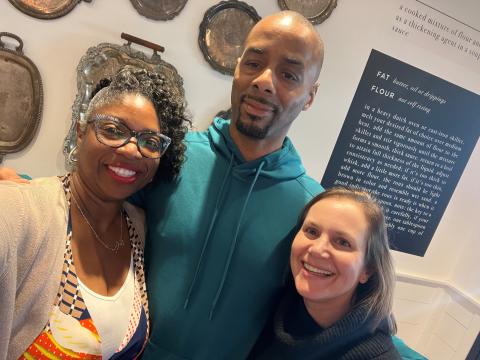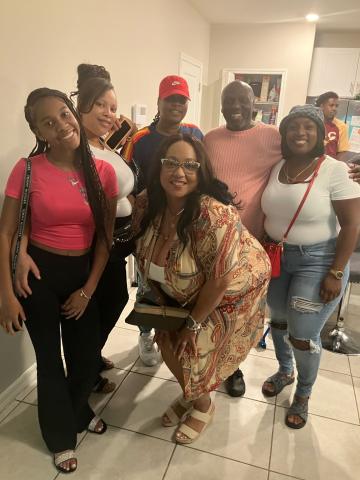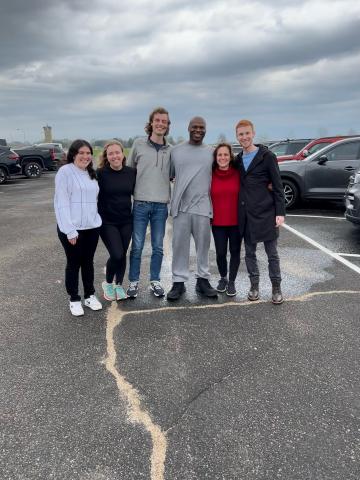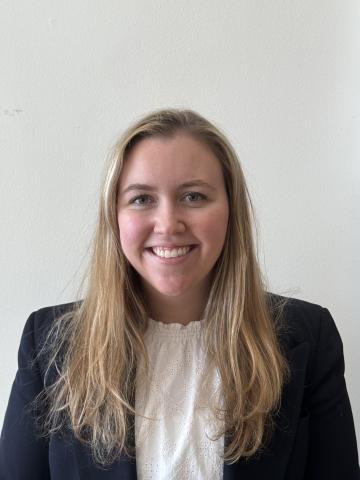CJJC Director Erica Zunkel and her students were instrumental in securing sentence commutations for Robin Peoples, Jasper Vargas, and Dion Walker.
read about the commutationsCJJC Director Erica Zunkel was awarded the 2024 Excellence in Pro Bono Service Award in recognition of her and her clinic students’ post-conviction sentence-reduction work.
read about the awardAbout the Clinic
The Criminal and Juvenile Justice Clinic (CJJC) provides pro bono representation to young people who are accused of delinquency or crime, as well as to individuals who were convicted as youth and are now serving extreme sentences. In its post-conviction work, the clinic seeks to address access-to-justice gaps by representing individuals who would otherwise lack legal counsel. The CJJC also undertakes impact work to advance justice in the criminal system.
Clinic students gain comprehensive, hands-on experience to become excellent attorneys and take on significant responsibility in all CJJC cases. Projects include drafting motions, briefs, and other pleadings in state and federal courts; interviewing clients and witnesses; conducting investigations; participating in pretrial hearings, trials, sentencings, and post-conviction matters; and pursuing alternatives to incarceration. Students work in teams to foster collaboration and ensure continuity in representation. Licensed third-year students may appear in court to argue motions and appeals, negotiate with opposing counsel, and serve as “second chairs” at trials. In recent years, third-year students have argued various substantive motions—including motions to suppress, motions for pretrial release, and motions in limine—and have conducted direct and cross examinations at trial and other hearings.
The CJJC is open to 2L and 3L students. Students wishing to enroll are strongly encouraged to take Evidence and Criminal Procedure during their second year and are required to take the Intensive Trial Practice Workshop in the fall of their third year. The CJJC is a full-year clinic and includes a regular seminar session and case rounds. Students with questions may contact Professor Erica Zunkel for more information.
The Criminal and Juvenile Justice Clinic is directed by Erica Zunkel. Previously, Zunkel was a trial attorney at the Federal Defenders of San Diego, Inc. and taught in the Law School’s Federal Criminal Justice Clinic. Zunkel’s work has appeared in The Hill, USA Today, and the Chicago Tribune, among other places.
CV & contact for Prof. ZunkelRead more about the CJJC’s work in our 2024-2025 Significant Achievements Report
Making an Impact
“From the moment Erica and her students started representing me, I knew this was the best legal experience I’d ever had. It wasn’t just the usual attorney-client relationship—there was real care involved. The letters, the phone calls, the way she and her students reached out to my family and friends—it made me feel hopeful again.
It meant the world to me to finally come home. It was a life-or-death situation. I still can’t believe I’m free. The work the clinic is doing is so important, and there are so many more people out there who deserve the same second chance.”
––Dion
Professor Zunkel and CJJC her students submitted a clemency petition on Dion’s behalf, which was granted by President Joseph Biden. Originally sentenced to life in prison for a non-violent drug offense, Dion was released after serving 19 years.
“Erica and the students at CJJC treated me like family. At this stage of my life, it gave me the chance to truly see the good in other people.
The work of CJJC tremendously changed my life. When I was released, I still had over 30 years left on my sentence. To have that time back... I’m not even going to try to put that into words.”
––Rickey
Rickey—a father of four—received a 56-year sentence when he was 40 years old. The CJJC successfully advocated for Rickey’s sentence to be reduced by 30 years and for him to be released from prison immediately.
“My early release had an unquestionable impact on my family and my congregation. Now that I’m out, I mentor young men on the west side of Chicago about how to lead a more productive life.
There’s not a lot of hope in prison–– it makes you feel like once you’re a criminal, you're always a criminal, but working with the clinics reminds you there are still good people in the world. Professor Zunkel and her students rekindled my hope and my purpose.
––Rashad
Thanks to the advocacy of Professor Zunkel and her Federal Criminal Justice Clinic students, Rashad was released 10 years early from a 25-year mandatory minimum sentence. After his release, the CJJC’s efforts led to Rashad’s post-incarceration term of supervision being terminated eight years early.
“My time at CJJC was incredibly transformative and meaningful. Not only did I strengthen my legal writing and research skills through work on numerous briefs, but I also witnessed firsthand how the justice system affects our clients and their families, and the power attorneys have to truly help people in the system.
I feel incredibly fortunate to have helped tell the stories of Rashad, Jasper, and Rickey. I will never forget driving to Indiana with Professor Zunkel to witness Rashad’s release, where he hugged his mother for the first time in 15 years. I know I will carry this experience with me throughout my legal career.”
––Maggie ’24
Maggie worked with Professor Zunkel during her 2L and 3L years at the Law School and was a key member of the student teams that secured early release for three clients. Maggie was also part of a student team that achieved a not-guilty verdict at trial.
The CJJC provides pretrial, trial, and post-conviction legal representation. Pretrial and trial cases are in Cook County criminal courts, while the clinic’s post-conviction work, through the CJJC’s Excessive Sentences Project, takes cases throughout Illinois and in federal courts across the country.
Joining the Criminal and Juvenile Justice Clinic
Interested in enrolling in the CJJC during the school year?
- The CJJC is a biddable clinic, and spots are allocated based on the same lottery that the registrar runs to allocate spots to other biddable classes. The most common entry point for the clinic is in Fall Quarter. There are occasionally open seats in Winter and Spring Quarter. Read more about the Law School’s Clinical and Experiential programs.
Interested in applying to the CJJC for a summer internship?
- The CJJC typically hires 1-2 University of Chicago law students each summer for an eight-week internship. The application portal opens in January.
- The CJJC also typically hires 1-2 undergraduate students each summer. University of Chicago undergraduates should apply through Career Advancement, and Harvard University undergraduates should apply through the Harvard Institute of Politics.
What is Rule 711?
Illinois Supreme Court Rule 711 permits eligible upper-level law students to engage in the limited practice of law under the supervision of a licensed attorney. The 711 license is available for work with approved legal aid organizations, law clinics, and government agencies. The 711 license offers a valuable opportunity for aspiring attorneys to gain hands-on experience, serve under-resourced communities, and contribute meaningfully to real cases before graduating from law school.
At CJJC, eligible 3Ls can become licensed under Rule 711 and gain real-world experience in the CJJC’s pretrial, trial, and post-conviction cases, including appearing in court under Professor Zunkel’s supervision.
Where CJJC Alumni Are Working Now
The Criminal and Juvenile Justice Clinic (CJJC) provides zealous representation to indigent children and adults who are accused or have been convicted of delinquency or crime. The CJJC is a national leader in expanding the concept of legal representation for children and young adults to include their social, psychological, and educational needs.




